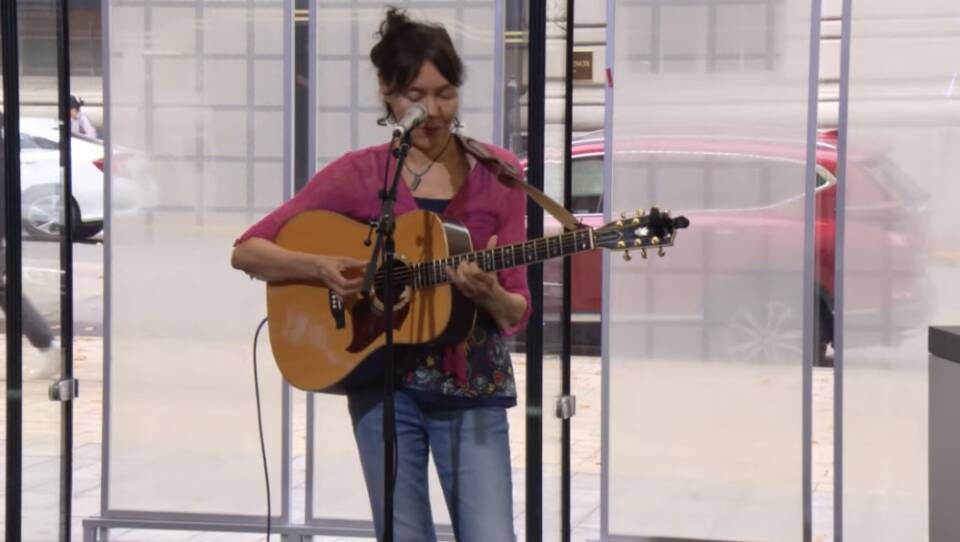Thea Hopkins, a singer-songwriter and member of the Aquinnah Wampanoag tribe, joined Boston Public Radio to speak about her heritage for the beginning of Native American Heritage Month.
Hopkins grew up in Massachusetts and describes her music as “red roots Americana.”
“It’s a term I came up with to describe my music as having red roots … as well as every other types of roots music, which is part of the American soundscape,” she explained.
Hopkins’ music career took a turn after she submitted her song “Jesus is on the Wire” to a songwriting contest hosted by Noel Paul Stookey of the folk group Peter, Paul and Mary. Although Hopkins didn’t win the contest, three months later, Stookey reached out to ask for permission to perform her song.
“It took me about five seconds to email back and say yes,” she recalled.
The song, written in memory of Matthew Shepard, a young man killed in Wyoming for being gay, holds deep meaning for Hopkins.
“When I was a teenager, the gay community embraced me … they loved me unconditionally,” she said. “You never forget those connections, those last forever.”
She then spoke about the recent apology from President Joe Biden for the Indian boarding school system’s impact on Indigenous communities, an apology she views as a “symbolic effort.”
She noted that more substantial action is necessary to recognize the harm caused by the establishment of these schools. Hopkins’ grandfather attended the Carlisle Indian School, a painful chapter that left a lasting impact on her family. “My grandfather never, ever spoke about his experiences, ever.”
She also addressed the Massachusetts State House’s art collection, which a recent report found that out of its hundreds of pieces, only one depicts Indigenous people.
“There is that issue still being dealt with as far as the intentionality of what is included in history versus what is not included,” she said. “Within Native communities, Indian country, there’s a lot of vibrancy and there’s a sense of healing going on. I would say things are moving forward.”





